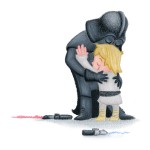 There is certainly no shortage of theories about what may or may not happen on December 21. Of course, nearly all of them will turn out to be wrong. My experience has shown however, that there is one thing you can do that will likely be beneficial regardless of what’s in store for us: think positive.
There is certainly no shortage of theories about what may or may not happen on December 21. Of course, nearly all of them will turn out to be wrong. My experience has shown however, that there is one thing you can do that will likely be beneficial regardless of what’s in store for us: think positive.
 Let me guess, you don’t have time to read this right now, do you? Yes, the holiday season is always busy and yes time seems to go faster as you get older but doesn’t life seem to be moving at an even more frantic pace than usual lately? I know I’m feeling it. But I’ve been expecting this time crunch for a while now, so it may be a bit easier for me to deal with. Since I tend to be pretty sensitive about this stuff, what I wasn’t sure about was whether others would be able to pick up on it too. In the last few weeks however, I’ve heard at least fifteen different people exclaim in near shock about how fast time’s been going lately. And this without my even bringing it up! So, what’s going on? Can time really be going faster? If so, how much faster can it go before we can no longer keep up? And what then? Are we literally running out of time?
Let me guess, you don’t have time to read this right now, do you? Yes, the holiday season is always busy and yes time seems to go faster as you get older but doesn’t life seem to be moving at an even more frantic pace than usual lately? I know I’m feeling it. But I’ve been expecting this time crunch for a while now, so it may be a bit easier for me to deal with. Since I tend to be pretty sensitive about this stuff, what I wasn’t sure about was whether others would be able to pick up on it too. In the last few weeks however, I’ve heard at least fifteen different people exclaim in near shock about how fast time’s been going lately. And this without my even bringing it up! So, what’s going on? Can time really be going faster? If so, how much faster can it go before we can no longer keep up? And what then? Are we literally running out of time?
 Have you been feeling a bit dizzy lately? Does time feel like it’s been flying by faster than ever? Experiencing ringing in your ears? Seeing flashes of light or fleeting glimpses of things that aren’t there? If you’re not head-over heels in love, pregnant, or smokin’ da ganja, you may be going through what’s known as ascension symptoms. What are they, why are they happening, what do they mean, and will they ever go away? If you’d like answers to questions like these, the latest installment of Layman just might be the prescription you’ve been looking for.
Have you been feeling a bit dizzy lately? Does time feel like it’s been flying by faster than ever? Experiencing ringing in your ears? Seeing flashes of light or fleeting glimpses of things that aren’t there? If you’re not head-over heels in love, pregnant, or smokin’ da ganja, you may be going through what’s known as ascension symptoms. What are they, why are they happening, what do they mean, and will they ever go away? If you’d like answers to questions like these, the latest installment of Layman just might be the prescription you’ve been looking for.
 Have you seen them? They’re everywhere: in movies and TV shows, on ads and product packaging, in architecture, design, floor patterns, the Olympics, online, and even on the paper wrapped around hero sandwiches. They are honeycombs and hexagons, and they are taking over. Sure, design styles come and go, but why has this one seemed to have popped up so suddenly, become so incredibly prolific, and been so invisible to so many? Of course, now that you’re in the know, you’ll begin seeing them too (if you haven’t already). The question is why are they here, what do they mean, and why should you care?
Have you seen them? They’re everywhere: in movies and TV shows, on ads and product packaging, in architecture, design, floor patterns, the Olympics, online, and even on the paper wrapped around hero sandwiches. They are honeycombs and hexagons, and they are taking over. Sure, design styles come and go, but why has this one seemed to have popped up so suddenly, become so incredibly prolific, and been so invisible to so many? Of course, now that you’re in the know, you’ll begin seeing them too (if you haven’t already). The question is why are they here, what do they mean, and why should you care?
 The first time I was given advice about the importance of forgiveness was at the most unlikely of places: an advertising school I was attending in Atlanta. The school had brought in speaker Joey Reiman—a very successful advertising executive who ran his own agency. Almost immediately, I could tell this man had a lot of wisdom, but it was towards the end of his presentation when something he said really resonated with me.
The first time I was given advice about the importance of forgiveness was at the most unlikely of places: an advertising school I was attending in Atlanta. The school had brought in speaker Joey Reiman—a very successful advertising executive who ran his own agency. Almost immediately, I could tell this man had a lot of wisdom, but it was towards the end of his presentation when something he said really resonated with me.
 Anyone who travels within spiritual circles has probably heard about “vibrations.” The context is usually that someone with a higher vibration is somehow more spiritual or that the goal of the individual is to raise his or her vibration. But what does this really mean? Is it all just spiritual mumbo jumbo or is there actually a science behind vibrations? As you probably figured out from the title of this article, I believe that there is absolutely a science to this spiritual concept. And I believe I can prove it.
Anyone who travels within spiritual circles has probably heard about “vibrations.” The context is usually that someone with a higher vibration is somehow more spiritual or that the goal of the individual is to raise his or her vibration. But what does this really mean? Is it all just spiritual mumbo jumbo or is there actually a science behind vibrations? As you probably figured out from the title of this article, I believe that there is absolutely a science to this spiritual concept. And I believe I can prove it.
 If you’ve ever wondered why we are here, this article is for you. If you’ve never wondered, some part of you has been wondering without your knowledge or else you wouldn’t be reading this now. There’s been a lot written about what life is and what we’re doing here. Some of it is very technical and philosophical. Some of it is very metaphorical and poetic. And then there is the actual answer, which we may never know. However, one truth I’ve noticed about this world is that cycles exist within cycles within cycles. Electrons swirling around a neutron are similar to our planets swirling around the sun. The shape of a leaf is indicative of the shape of the tree it came from. History repeats itself. Myths evolve over time but their basic elements all remain the same. Putting these truths together I was able to trace back to the origins of the first story and, to my shock and awe, uncovered an answer to a question I’ve been wondering for a very long time: why did the universe evolve to become so seemingly complicated? The answer, ironically enough, is incredibly simple.
If you’ve ever wondered why we are here, this article is for you. If you’ve never wondered, some part of you has been wondering without your knowledge or else you wouldn’t be reading this now. There’s been a lot written about what life is and what we’re doing here. Some of it is very technical and philosophical. Some of it is very metaphorical and poetic. And then there is the actual answer, which we may never know. However, one truth I’ve noticed about this world is that cycles exist within cycles within cycles. Electrons swirling around a neutron are similar to our planets swirling around the sun. The shape of a leaf is indicative of the shape of the tree it came from. History repeats itself. Myths evolve over time but their basic elements all remain the same. Putting these truths together I was able to trace back to the origins of the first story and, to my shock and awe, uncovered an answer to a question I’ve been wondering for a very long time: why did the universe evolve to become so seemingly complicated? The answer, ironically enough, is incredibly simple.
 We are living through some pretty dark times. The economy continues to be horrendous with the middle class going through the toughest challenges it’s ever had to face. To make matters worse, natural disasters are becoming more powerful and frequent than ever before, the uprisings in the Middle East are bringing unprecedented instability to the region, and if these “end of days” scenarios weren’t enough, the Maya, Nostradamus, and others all actually predicted the end of the world in 2012. It’s not like this is anything you haven’t heard on the media or from others dozens of times before. The funny thing? None of it’s true. Lately, we’ve been hearing and accepting dozens of statistics like these without question. It’s a sinfully delicious dessert the entire world seems to be stuffing themselves with: the chocolate cake of negativity.
We are living through some pretty dark times. The economy continues to be horrendous with the middle class going through the toughest challenges it’s ever had to face. To make matters worse, natural disasters are becoming more powerful and frequent than ever before, the uprisings in the Middle East are bringing unprecedented instability to the region, and if these “end of days” scenarios weren’t enough, the Maya, Nostradamus, and others all actually predicted the end of the world in 2012. It’s not like this is anything you haven’t heard on the media or from others dozens of times before. The funny thing? None of it’s true. Lately, we’ve been hearing and accepting dozens of statistics like these without question. It’s a sinfully delicious dessert the entire world seems to be stuffing themselves with: the chocolate cake of negativity.
 There have been a lot of “life-as-illusion” themed movies coming out lately. We’ve had Avatar, Inception, and TRON: Legacy, and this month alone there’s The Adjustment Bureau, Limitless, Sucker Punch and Source Code. All these films share themes of alternate realities, questions about what is reality, and insight into powers that might be manipulating the reality we live in. While I hope to discuss the most recent batch of these films in an upcoming column, for now I’d like to bring up one that slipped past the radar of many moviegoers. This film actually gave me goose bumps when it revealed an angle that I’ve only recently adopted, and have never before seen in any other movie. That film is Disney’s Tangled.
There have been a lot of “life-as-illusion” themed movies coming out lately. We’ve had Avatar, Inception, and TRON: Legacy, and this month alone there’s The Adjustment Bureau, Limitless, Sucker Punch and Source Code. All these films share themes of alternate realities, questions about what is reality, and insight into powers that might be manipulating the reality we live in. While I hope to discuss the most recent batch of these films in an upcoming column, for now I’d like to bring up one that slipped past the radar of many moviegoers. This film actually gave me goose bumps when it revealed an angle that I’ve only recently adopted, and have never before seen in any other movie. That film is Disney’s Tangled.
 In anticipation of TRON: Legacy, I recently re-watched a bunch of simulation-world films including The Thirteenth Floor, eXistenZ, and the original TRON, which I hadn’t seen in over twenty-five years. While I remember being somewhat confused watching the futuristic Disney film as a kid, seeing it again with new eyes, I was amazed at how clearly it expressed the “life as illusion” theme I’ve been so fascinated by as an adult. In the original movie, Jeff Bridges is considered a “user.” While Bridges often plays users in his films, in this case, it refers to a computer user who manipulates the scenarios of a digital world that is very similar to our own. In the original film, users are considered mythical, messianic figures who can help free the programs from the game they find themselves in. This got me thinking.
In anticipation of TRON: Legacy, I recently re-watched a bunch of simulation-world films including The Thirteenth Floor, eXistenZ, and the original TRON, which I hadn’t seen in over twenty-five years. While I remember being somewhat confused watching the futuristic Disney film as a kid, seeing it again with new eyes, I was amazed at how clearly it expressed the “life as illusion” theme I’ve been so fascinated by as an adult. In the original movie, Jeff Bridges is considered a “user.” While Bridges often plays users in his films, in this case, it refers to a computer user who manipulates the scenarios of a digital world that is very similar to our own. In the original film, users are considered mythical, messianic figures who can help free the programs from the game they find themselves in. This got me thinking.
 There is certainly no shortage of theories about what may or may not happen on December 21. Of course, nearly all of them will turn out to be wrong. My experience has shown however, that there is one thing you can do that will likely be beneficial regardless of what’s in store for us: think positive.
There is certainly no shortage of theories about what may or may not happen on December 21. Of course, nearly all of them will turn out to be wrong. My experience has shown however, that there is one thing you can do that will likely be beneficial regardless of what’s in store for us: think positive.









